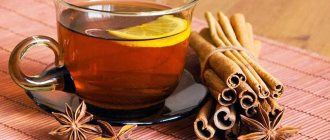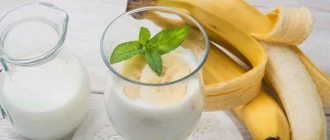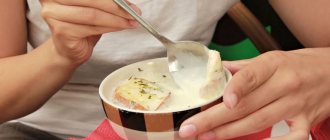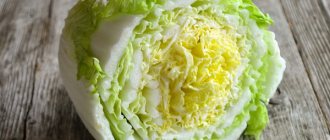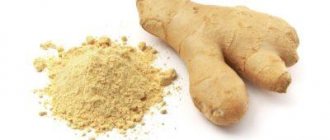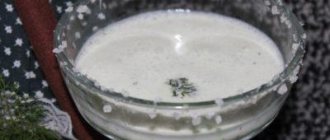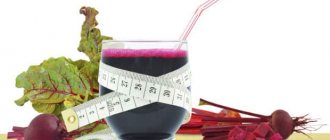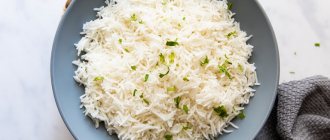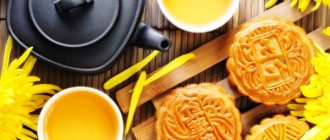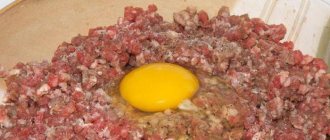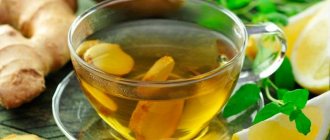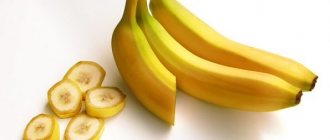Composition of Bedouin tea
Bedouins add spicy herbs growing in the desert to various types of black teas. Each plant adds unique notes and healing powers to the tonic drink, making it unique. By adding a pinch or two of khabak, marmaria, rosemary or cardamom to the usual brew, you get a tasty and aromatic tea.
Cardamom fruits are mixed in Egypt with black varieties of Chinese tea to produce wonderful aromatic drinks. Rosemary, a fragrant, beneficial herb, gives teas prepared by Bedouins a wonderful aroma and excellent healing and soothing properties.
In addition, in Egypt, herbal yellow tea is brewed without using tea leaves. To prepare it, they take helba - a desert plant that has incredible healing powers.
Why is Bedouin tea beneficial?
All the power of tea lies in its composition: herbs that grow only in Egypt are the source of its miraculous properties.
- Marmarea is a mountain grass of the Sinai Peninsula. It easily copes with painful sensations in the stomach, stimulates metabolism and helps in the fight against excess weight. For nursing mothers, marmarea is useful for increasing milk supply.
- Khabak occupies an exceptional place among the entire herbal world of the Egyptian desert. This endemic of the Sinai Peninsula cleanses the lungs, has a beneficial effect on the nervous system, and is useful for stomach problems. Some lovers of Egypt attribute the amazing calm and regularity of the nomads to this component of Bedouin tea.
How to make tea taste better
In addition to native Egyptian herbs, nomadic tea may contain hibiscus, ginger, mint, cinnamon, and cardamom, which are more familiar to European tastes.
Egyptian hibiscus has a sour taste and cherry color. This herb is especially beneficial for the genitourinary system, gastrointestinal tract and pancreas. Hibiscus regulates blood pressure. It is better for hypertensive patients to consume it cold. People suffering from low blood pressure are in hot water.
Ginger is a natural energy booster. It tones the heart, is useful for digestive problems, and improves blood circulation. Expectant mothers should not drink Bedouin tea with ginger.
Mint (naanea) has an excellent tonic effect. This quality is especially valued in the suffocating heat of the desert.
Bedouin tea with habak
The homeland of khabak is the expanses of the Sinai Peninsula. Tea with this herb, similar in taste and aroma to mint, is the pride of the Bedouins. Drinks prepared on its basis are considered health elixirs that cleanse the lungs, relieve coughs and relieve stomach pain.
There are two variations of brewing weed. In the first case, herbal tea is prepared from habak leaves. In the second, before preparing the drink, the plant is mixed with tea leaves. To get more pleasure, exotic tea is sweetened with sugar or honey.
Bedouin tea. Forgotten history.
Last October we were in Sharm. A traditional trip to the Red Sea for our club. Such trips, especially in the fall, are doomed to success. Nothing can ever spoil them. Even though the program is always the same, everything was great. I won’t describe it in detail; a lot of time was devoted to this before. I just want to tell you a short story, after which I began to treat government officials in Egypt with greater respect.
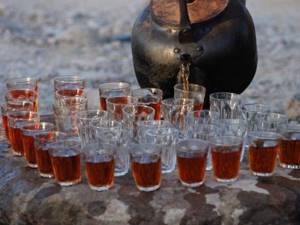
The program in Sharm consists of seven days of diving, five of which are dedicated to Tirana and the Ras Mohammed nature reserve. The sixth is for Tistelgorm and the seventh, final, for Dahab. There we have two dives and in the evening a final dinner at the Al'Capone restaurant, Light House area. Dives, the first in the “Canyon”, the second in the “Well” and the famous “Blue Hall”. Anyone who was there understands perfectly well what we are talking about and how it happens.
We arrived at the Canyon site and settled down in a cafe on the shore. Some drank tea, some just sat waiting for the dive. I've been going to Egypt for almost 15 years. It has always been this way. Everything went smoothly, as always. We got ready and moved on. We also had great pleasure diving at Blue Hall. Everything is the same as before, only they set up a checkpoint at the entrance and started collecting ten dollars per diver. Without explanation why or for whom. I decided, probably, so that the arch would not fall through.
We set off on the return journey. Our group traveled in two Toyota minibuses. I was in the first one, the host instructors and all the permits for our team were in the second one. We were passing “Canyon” when, suddenly, a cafe worker appeared in front of our bus and blocked our way. There was no way to get around it. By this time the second bus arrived. Everyone stopped. The instructors came out, it was not clear why we were standing. A dialogue took place between them and the employee. From the outside it seemed that a fight was about to begin. Emotions on both sides were so overflowing. I didn’t understand anything; they spoke Arabic. It turned out that our group, diving in this place, was obliged to buy something in his “cafe”, and out of seventeen only seven drank tea. This means that the remaining ten owe him money. On this basis, he decided to stop our car and blocked the way. For added importance, he called on the security guard who stood nearby and confirmed the validity of his claim. The asking price was fifty pounds per person, while the tea we drank at his place cost only fifteen. The money is not big, but the question remains, what is happening? I got off the bus. Started talking to the security guard. He was unshakable. We realized that we would not achieve the truth, so we decided to pay. Time was precious, there was no time for pride. And talking to a Bedouin who was supported by a government representative was pointless. The owners. One thing we achieved was to convince them that arithmetic is strange. Tea is 15, but they want 50. At the same time, I read on the employee’s face that he did not understand what we were talking about. I demanded ten glasses of tea now, for which we will pay 150 pounds and close the matter. With a dissatisfied face, the worker brought us ten glasses of tea. I paid what was promised. The money disappeared into the winner's pocket. He was pleased. I asked the sergeant: Is the question closed? He answered: yes. Is my tea rightfully purchased? The answer is yes.
No matter how hard I tried to control myself, indignation was seething inside me, we all understood that they wiped their feet on us. The second me, inside, demanded satisfaction. As a farewell, I poured all ten glasses of tea at the sergeant’s feet. He did it slowly, with obvious defiance. Turning to him, I asked: Who is the representative of the authorities here? He or this Bedouin inventing his own new rules? I reminded him that we, as tourists, are here at the invitation of his President Sisi. He suggested that he change his job, get a job in a cafe to wash dishes and not disgrace Egypt. There was a silent scene. The sergeant's face was bloodshot. The cafe worker began to look away, pretending that he had not heard it. Our diving instructors were silent, realizing that I had gone too far. Taking advantage of the pause, we got on the bus and left. The tension subsided. I began to realize the stupidity and meaninglessness of my actions. I pulled the lion's whiskers, albeit a thin one.
Having arrived at the restaurant where dinner was planned, I found out that there was no second bus. After waiting a little, we called our team to find out what was the delay and where they were. It turned out that the bus was delayed. An offended sergeant brought a senior officer from the unit, there is a showdown, there is clear disrespect for government officials on my part. We had to go back, but our bus driver refused to go back and said we’d wait here.
An hour has passed. I understood that a problem awaited us and that it was my fault. The second bus arrived. Our people came out of it. No one could explain anything to me; all negotiations there took place in the local language. Our dive guide approached me. What he told me shocked me. He gave me the £150 and conveyed an apology from the senior officer for the misbehavior of his subordinate with a promise that this would not happen to tourists again. Again there was a scene of silence. Only now we were silent. I was ashamed of my behavior. Those who have been to Egypt at least once knew that it is impossible to take money back from an Arab. It is impossible to convince a Bedouin that he is wrong. This requires authority, strength and integrity. Apparently, this officer possessed all these qualities. Everything ended well and nothing could ruin our vacation. We will return here as tourists. They are waiting for us here.
We called the checkpoint where the events took place. They invited that officer. I apologized to him on my own and thanks from the entire group for his good service.
Bedouin tea with marmaria
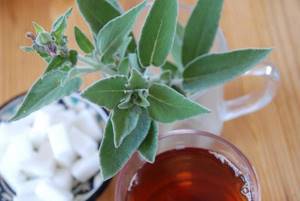
The absence of strict recipes is a feature of Egyptian drinks. Marmaria, like other herbs, is added to Bedouin tea according to taste. For some, a teaspoon is enough, for others, a tablespoon is needed per glass of boiling water. When preparing a tea mixture, people often experiment with the herb. The proportions of black tea and marmaria are constantly changing, without adhering to any strict rules. Even on packages of ready-made mixture purchased in a store, the exact composition is not indicated. The buyer's attention is drawn only to the fact that the ingredients are wild herbs growing in the desert.
There is evidence that marmaria helps with poor circulation, gastritis and stomach pain. Tea with it can lower blood sugar, fight excess weight and increase lactation.
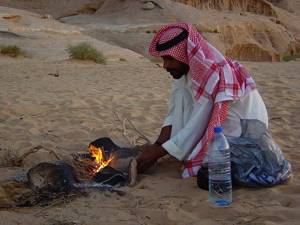
Marmaria tea for weight loss
Due to the fact that this herb removes unnecessary cholesterol from the body, cleanses and strengthens the walls of blood vessels and normalizes female hormonal levels, reduces appetite and accelerates metabolic processes, it is a wonderful remedy that can correct the contours of the body in a short period of time.
Naturally, if you limit yourself to only drinking tea with marmaria and continue to eat cakes and fast food, lie on the couch instead of even taking walks, the weight will not go away; it will be with you “forever.”
Marmaria is an auxiliary remedy that is aimed at helping the body lose weight and, using it, a person copes with the problem of extra pounds much faster.
How to brew marmaria
Marmaria is consumed in the form of tea; you can brew it in its pure form (for those who are already accustomed to its taste) at the rate of 1 tsp. for 300 ml boiling water. However, most often this herb is simply added to the usual black or green tea, the calculation of the proportions is the same, plus tea leaves.
In addition, you can safely add mint or lemon balm leaves to your tea; this will in no way diminish the healing properties of marmaria.
The great thing is that there are no special contraindications to its use. The exceptions are pregnant women and women during lactation, as well as people with individual intolerance.
Author of the article: Olga Pristenskaya
Features of Egyptian yellow tea
There is no more unusual tea in the world than Egyptian yellow tea. It is obtained not from the leaves of tea bushes or herbs, but from helba seeds. Otherwise, the plant is called shamballa, fenugreek, chaman, abish, camel grass or fenugreek. This Bedouin tea is incredibly popular. Tourists enjoy its taste in Egypt and bring it home.
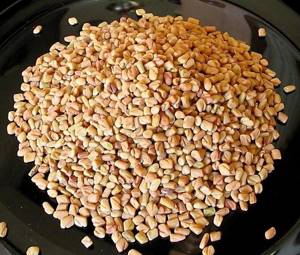
Helba is a leguminous plant. Its small seeds (beans), reminiscent of buckwheat, are located in large pods. Helba leaves, flowers and beans, saturated with coumarin, exude a strong, characteristic spice aroma. They have a slight hint of vanilla and chocolate.
An unusual yellow tea from Egypt, the reviews of which are contradictory (there are gourmets who are ready to savor it endlessly, but there are also those who limit themselves to tasting the exotic drink), has an aroma permeated with smoky notes. The skin of people who drink the drink is saturated with a specific odor. Some claim that it smells like walnuts, others - bitter wormwood.
Bedouin tea, as it is traditionally called, is a drink made from black tea with the addition of habak and/or marmarea, herbs that grow only in Sinai.
Khabak
Since time immemorial, the Bedouins, the indigenous inhabitants of the Sinai Peninsula, have been enjoying amazingly delicious tea with habak, which has a beneficial effect on the nervous system, relieves stomach pain and is indispensable for colds, coughs and sore throats. Khabak has a slightly minty, but characteristic cool smell and taste. It grows only in Sinai and, due to the wide range of positive effects it has on the body, as well as its taste, has become an integral part of the tea drinking culture of the inhabitants of the deserts and mountains of Sinai. Habak can be brewed on its own (pour half a teaspoon of boiling water into a glass), or in combination with black tea, just add 1-2 pinches of Habak per glass. Sugar is added to taste, but the unsweetened drink is drunk for its medicinal effect. Unforgettable aromatic tea creates a special mood and is equally suitable for drinking tea by the fire or on the seashore, as well as at home.
Marmaray
Marmarea grows exclusively on the Sinai Peninsula. This plant is a relative of sage. Its leaves have a unique taste, smell and a range of healing properties. Sweet tea with marmare is one of the traditional Bedouin drinks. You can brew it yourself or add it to black tea (1 teaspoon per pot), and it also goes well with habak. Marmara tea is the best drink after a heavy dinner, as it improves the functioning of the digestive system. In local folk medicine it is used to treat gastritis, without any side effects. Reduces blood sugar, improves blood circulation, soothes stomach pain.
Hibiscus
Hibiscus is a flower of the Hibiscus plant. Grows in Egypt and Sudan. The most delicious and beautiful hibiscus from Aswan. It has the most pronounced sweet-sour taste. The large flower is dark red (almost black) and makes an excellent drink, rich in vitamin C and minerals. Traditionally, in Egypt they prefer cold hibiscus, knowing about its healing properties and actions. To do this, just pour cold, clean water over the petals (1-2 tablespoons per glass of water) and let it brew for 12 hours, then strain. Sugar is added to taste before use (1-3 teaspoons per glass). Without sugar, such a drink can be stored in the refrigerator for quite a long time. A glass of a cold, rich red vitamin cocktail with clear ice cubes perfectly quenches your thirst on hot summer days. Hot hibiscus is also popular, it warms, gives strength and strengthens the body. To prepare a hot drink, pour the flowers with cold water (1-2 tablespoons per glass of water), bring to a boil and cook for 3-5 minutes. It is important to remember that cold hibiscus lowers blood pressure, while hot hibiscus, on the contrary, increases it.
Doom
The doom palm has a branched trunk 6-9 meters high. The edible oval fruits of Duma are brown in color, the size of an apple or orange, and have a sweet and sour gingerbread flavor. The palm tree grows in Upper Egypt, in the Nile Valley. This plant was held in special esteem by the ancient Egyptians and was often depicted in their frescoes. Eight baskets of doum palm fruit, estimated to be 3,000 years old, were discovered by archaeologists in 2007 in the tomb of Pharaoh Tutankhamun.
Since ancient times, the fruits have been eaten. To this day, the peel of the dried fruit is used to make a drink, molasses, cakes, and sweets. Delicious doum tea is popular in Egypt and is considered a good remedy for diabetes and fever. Sprouted seeds are eaten as vegetables. Dry seeds are traditionally used for small decorations and rosaries. The fibers are used to make ropes, and the leaves are used to weave quality baskets. The drink from Duma is prepared like regular tea; if you use Duma powder, then a teaspoon per glass will be enough. Dum in Dahab is sold in the form of whole dry fruits, crushed fruits and in powder form.
Anise
Anise (in Arabic "Yansun") - the fruits (seeds) of this plant are brewed as tea in Egypt. Local cafes often offer hot sweet anise with lemon. It is no coincidence that anise tea has been drunk for a long time in Egypt and throughout the east. In addition to its pleasant taste, this drink also has amazing healing properties. For medical purposes, it is used for various digestive disorders, such as flatulence, bloating, anacid gastritis, and so on. To do this, drink brewed anise without sugar 3-5 times a day. For a mug of anise tea you will need 1 teaspoon of seeds. Pour boiling water over it and let it brew for 5 minutes, then strain. Also, anise tea is an excellent cure for sore throats, coughs and colds. Lemon or honey is added to anise tea, to taste, which makes this drink especially pleasant.
Helba
Helba (shambhala, fenugreek) is an amazingly healing drink prepared from the seeds of a plant whose Russian name is Fenugreek. It is well known in folk medicine, but is not so popular as a tea. In Egypt, a drink made from helba is sometimes called “Yellow tea” and has been drunk everywhere since the time of the pharaohs. Rich in vitamins and minerals, one glass of helba provides the body with the daily norm of essential substances, and is also an excellent way to maintain the health of the genitourinary system. Helba helps cope with colds, bronchitis, pneumonia and is a good warming agent. To prepare helba tea, you need to bring the seeds to a boil and cook for 2-3 minutes, at the rate of 1 teaspoon per glass of water. The resulting drink must be strained and added sugar or honey to taste.
Cinnamon
Since ancient times, cinnamon has been known not only in Egypt, but throughout the world as an excellent spice used in cooking as a seasoning or aromatic additive. For the properties that cinnamon has, it was highly valued by ancient peoples and could serve as an expensive gift among rulers. Many Egyptians love to brew cinnamon and enjoy its warm, incredibly pleasant sweet taste and aroma. This warming drink helps with colds and also reduces blood sugar levels. Cinnamon is the cut and dried bark of the cinnamon tree, which originally grew only in Ceylon. Currently, cinnamon is cultivated in many countries around the world. I would like to note that there are two types of cinnamon: real cinnamon (Ceylon) and cassia (“Chinese cinnamon”). Real cinnamon is valued higher than Chinese cinnamon for its particularly delicate aroma and exquisite taste. Chinese cinnamon has a similar smell, but rougher and sharper. It is very simple to distinguish Chinese cinnamon from real cinnamon: Chinese cinnamon almost never rolls into a tube; it looks like the bark of a bush or tree, its color is brown and gray. You can make many wonderful drinks from cinnamon. One of them is apple cider. To do this, take 0.5 liters of apple juice (preferably from red apples), put 1 tube of cinnamon in it and cook for 3 - 5 minutes. The prepared drink can be drunk both hot and cold.
Ginger
In Egypt, ginger is sold dry and fresh. Dried ginger roots and powder can be purchased at almost any spice store. You can find fresh ginger roots in vegetable shops and supermarkets in Dahab. A ginger drink is a first-class energy boost. It improves digestion, is a good antiseptic, helps with motion sickness and motion sickness, colds and serves as a source of restoration of vitality. However, ginger is not recommended for pregnant women. Ginger tea is good with lemon, honey, mint, cold or hot. For a mug of ginger drink you will need 0.5 teaspoon of dry powder or several small slices of fresh ginger. Ginger is brewed like regular tea, but the longer it is steeped, the more vibrant and spicy the taste it acquires.
Moringa
Recently, a new amazing product for brewing tea has appeared in Dahab. This is Moringa oleifera. Moringa tea is becoming very popular not only in Egypt, but throughout the world. This plant is called a miracle tree, and also the most useful plant. These assertions are not without foundation. Moringa has been known for its healing properties since time immemorial, and has received universal fame as a “super product” since the end of the 20th century, thanks to numerous studies by scientists from different countries.
Moringa contains a huge amount of nutrients (more than 90), 8 essential amino acids, 46 antioxidants, 36 anti-inflammatory substances, almost all the vitamins, micro and macroelements the body needs. We will not dwell in detail on all the qualities of moringa, since this would require a whole book. Let's give just a few facts. For example, iron in moringa is 25 times more than in spinach, calcium is 17 times more than in milk. Bananas have 15 times less potassium than moringa, and the vitamin A content is 400% higher than carrots. Moringa is twice as rich in vitamin C as oranges. Moringa is also the record holder among plants for protein content. Its leaves contain up to 40% proteins.
One cannot fail to mention the cosmetic properties of moringa. In addition to moisturizing and nourishing the skin, it can smooth out wrinkles and make the skin smooth. Its magical property is that it restores youth to the skin by stimulating metabolic processes in tissues.
Moringa can be consumed as regular tea. Brew it with boiling water, let it brew and the miracle drink is ready. Don't throw away the brewed leaves; they still have a lot of nutritional value and are mild in taste.
Moringa has virtually no contraindications. You should not use moringa only during pregnancy, as well as for those who use blood thinning medications.
Also a very popular plant in Egypt, used for making tea and other drinks, is mint, the beneficial properties of which are familiar to everyone. You can also find chamomile, rose petals (rose hips), black and green tea, cardamom, ginseng and much more on the tea counters of Dahab.
Enjoy your tea!
Composition of Egyptian yellow tea
Helba beans, from which aromatic Bedouin tea is brewed, are rich in microelements, vitamins and amino acids. By preparing the drink, a healing extract of mucous and bitter substances, rutin and coumarin, steroidal saponins and phytosterols, flavonoids and alkaloids, essential and fatty oils, tannin and enzymes is obtained.
The beneficial substances from the beans dissolve almost completely in boiling water, forming a brew with powerful healing properties. The drink has a beneficial effect on the human body.
The benefits of helba tea
The healing power of fenugreek was appreciated by Hippocrates. The doctor recommended it for menstrual pain and for breastfeeding women to increase lactation. He used Helba during childbirth to relieve pain.
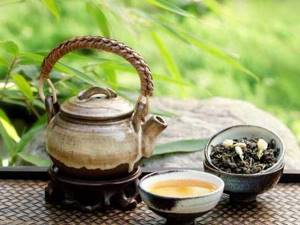
The benefits of tea for the treatment of ailments affecting the gastrointestinal tract are undeniable. The drink removes toxins and mucus from the intestines and relieves stomach cramps. It makes life easier for ulcer sufferers by enveloping the walls of the digestive system with a protective film. Pregnant women drink a herbal infusion to give their muscles elasticity.
By consuming it, they normalize the functioning of the liver, reduce the level of “bad” cholesterol and blood sugar, and get rid of skin diseases. People who experience inadequate stress and have an unbalanced diet avoid anemia thanks to a decoction of helba.
Tea treats arthritis and cleanses the kidneys. By adding date decoction to the drink, stones formed in the kidneys and present in the bladder are dissolved and removed. It is used in the treatment of female diseases, to relieve headaches and get rid of impotence. Helba herbal tea is an excellent antidepressant; it calms and relieves anxiety.
Yellow tea from Egypt is also good for colds. Reviews claim that helba infusion is a powerful antipyretic and expectorant. A mixture of yellow tea and milk helps eliminate dry cough, get rid of bronchitis, sinusitis, pneumonia and other diseases.
Nutritionists actively use the drink as an additional tool in a comprehensive program aimed at reducing excess weight. The action of tea components has a beneficial effect on the functioning of the heart, mental activity and vision. They normalize blood pressure and stimulate the immune system.
Instructions for use
Marmaria tea from Egypt is recommended to be brewed using the traditional method. Today, drinks made from marmaria are on sale, as well as with the addition of other spices and Egyptian herbs. To brew the drink you will need approximately 1-2 teaspoons of herbal tea, which must be mixed with regular black or green tea.
The mixture of herbs and tea should be poured with 300 ml of hot water and let the tea brew for at least 10-15 minutes.
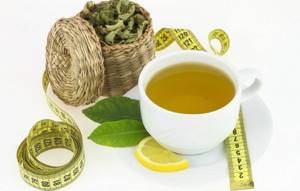
This time is quite enough for all the healing properties of weight loss tea to manifest themselves intensively. To obtain the most effective results, it is not recommended to add sugar to the drink. If you want to make it a little sweeter, the best option would be a teaspoon of natural honey.
Properties of the drug
Bedouin tea is based on a herb called marmaria, which grows exclusively in the deserts of the Sinai Peninsula. In its appearance, aroma and healing properties, this desert herb resembles sage - which is why marmaria is often called “Sinai sage”.
The composition of Bedouin tea from Egypt includes khabak - a herb that does not grow outside the Sinai deserts, and other herbs and spices - anise, ginger, rosemary, cinnamon, cardamom.
Due to its healing and stimulating properties, tea from Egypt is actively used for weight loss. How does the drink affect the body?
- Marmaria has a stimulating effect on metabolic processes in the body, accelerating them and helping to lose weight by quickly burning fat;
- Bedouin tea helps normalize the functioning of the gastrointestinal tract, which makes it easy to control appetite - a feeling of fullness appears from a small amount of food;
- The Egyptian drink has a beneficial effect on a woman’s hormonal system - it also helps to reduce appetite and more intensive weight loss, minimizing the risk of sudden weight fluctuations;
- Reduces cholesterol and blood sugar levels.
How to take for weight loss
The Bedouin weight loss drink is produced in two forms - exclusively from marmaria and with the addition of other Egyptian herbs. If you purchased pure marmaria, it is recommended to mix it with green tea in a 1:1 ratio, brew it like regular tea and drink before and after meals. Thus, an intense stimulating and tonic effect is achieved, metabolic processes in the body are normalized, and the mechanism for burning extra pounds is activated.
A ready-made herbal mixture for weight loss from Egypt is prepared as follows: pour 1 tablespoon of the herbal mixture with a glass of boiled water, then leave for half an hour to infuse and drink.
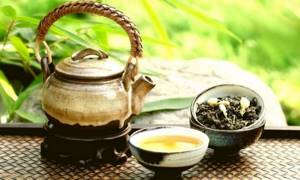
A dietary drink from marmaria can be prepared in a water bath: the container with the tea leaves is placed in a water bath and boiled for 15-20 minutes, the drink is allowed to cool and consumed as regular tea. For taste, you can add other herbs of your choice to the tea - mint, lemon balm, rosemary, cinnamon. This does not have any effect on the healing and stimulating properties of marmaria tea.
There is no clear recipe for making marmaria tea for weight loss. Nutritionists advise preparing the drink to your liking.
That is why it is allowed to use both a teaspoon and a tablespoon of herbal tea for brewing. The effectiveness of the Egyptian plant does not depend on the amount of brewing - it depends on the frequency of drinking tea. For weight loss, the best option is to drink 4-5 cups of Bedouin tea per day.
Contraindications
Bedouin marmaria tea is an organic preparation that contains natural herbs and spices from Egypt, which have some contraindications for use. There are a number of cases in which the use of a diet drink is not recommended.
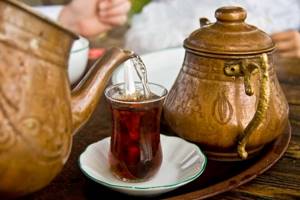
- Herbal tea from Egypt is not recommended for use during all trimesters of pregnancy;
- One of the main contraindications to the use of Bedouin tea is the period of breastfeeding. During lactation, drinking tea from Egypt is allowed only with the permission of a doctor;
- The drug is contraindicated in women and men with various diseases of the gastrointestinal tract;
- The use of the drug for weight loss should be abandoned if an individual intolerance to one of the components of the drink is identified.
Side effects
If you have any diseases of the internal organs, occurring in acute or chronic form, it is recommended that you consult with your doctor before drinking Bedouin tea. In most cases, herbal remedies for weight loss are well tolerated by the body and do not cause side effects.
Price
Depending on the manufacturer and composition of the drink, the cost of Bedouin tea can range from 350 to 1,500 rubles.
The drug from Egypt is an effective dietary drink, the effect of which is aimed at stimulating metabolic processes in the body and activating the burning of extra pounds. The weight loss drink is recommended to be consumed in addition to diet and regular exercise.
THESE ARTICLES WILL HELP YOU LOSE WEIGHT
Your feedback on the article:
( 835 ratings, average: 4.49 out of 5)
How to brew yellow tea
Since the seeds of the medicinal herb are used as infusion, rather than the leaves, the traditional method of preparing the drink is not suitable for yellow tea. Of course, the helba can be poured into boiling water and infused. However, the beans will not reveal all the medicinal properties, and the benefits of the tea will not be complete.
A special recipe has been invented for yellow tea. Fenugreek beans are boiled. Helba is not an elite tea from Egypt, but rather a herbal infusion. You shouldn’t even think about a teapot; it’s not suitable for preparing a healing drink. The decoction is made in small saucepans.
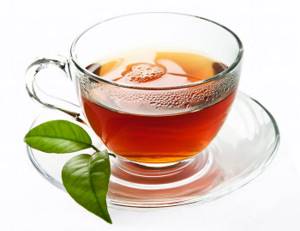
Washed and dried fenugreek seeds are roasted and ground, allowing the aroma of the tea to release. The drink is made from a glass of water and 1-2 teaspoons of pre-prepared tea leaves. Boil the mixture for 5-8 minutes.
The resulting tea is delicious, described differently by people. Some people perceive an extravaganza of flavors in it, others consider it an unpleasant drink. Despite the richness of shades that evoke conflicting feelings, tea fans claim that nutty notes dominate the flavor of the herbal decoction.
Brewing methods
Marmaria herb for weight loss can be used in its pure form, or in combination with tea leaves or other herbs and spices (cardamom, rosemary, habak, etc.). You can purchase ready-made herbal teas with the addition of this herb, or you can prepare the infusions yourself. Use 2-3 tsp for a teapot. black tea (depending on the number of persons) and 1 tsp. marmaria. The dishes should first be scalded with boiling water. When brewing a complex collection (Egyptian tea) for 1 tbsp. boiling water, a full large spoon of raw materials is consumed. You can brew it in two ways - either pour boiling water over the herb and wrap it for 15-20 minutes, or boil it in a water bath for the same time, and then wait until it cools down to a comfortable temperature.
How to drink yellow tea
Drink the drink after cooling slightly and sweetening with sugar or honey. Sometimes pieces of ginger or slices of lemon are added to it, and milk is used instead of water for brewing. For medicinal purposes, helba seeds are often used not as infusions, but as 12-hour infusions.
Many medicinal drinks are prepared based on yellow tea. A decoction of milk and helba seeds eliminates impotence. A thick infusion of fenugreek with dates is given to people suffering from anemia. A remedy made from stevia leaves and fenugreek beans is used against arthritis.
Where to buy Bedouin tea
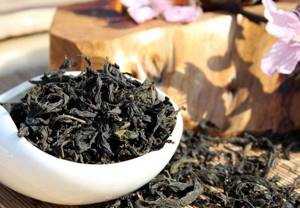
The problem is that their base is not elite tea, but cheap black varieties. Therefore, tourists are advised to buy herbs separately when returning home. From high-quality brewed habak, marmaria or helba, it is easy to prepare an excellent home-made drink, almost indistinguishable from what is served in Egypt. There are no strict cooking recipes, which opens up unlimited possibilities for experimentation. If the brew of noble varieties is enriched with the taste and aroma of desert herbs, you will get a magnificent Bedouin tea that has not lost the properties of the real drink prepared by the Egyptians.
However, this is an optional condition. Not only branded black teas are suitable for this drink. By choosing a different brew, changing its ratio with herbs, comparing and feeling the difference, a lover of an exotic drink will definitely find that ideal Bedouin tea recipe that will bring pleasure, invigorate and improve health.
LiveInternetLiveInternet
Quote from Galaxy24
Read in full In your quotation book or community!
***
It is called SHIEKH. There is nothing about her on the Internet. The information that came with the grass, of course, is not enough. So, for preventive and therapeutic purposes to normalize the functioning of the gastrointestinal tract (gastritis, colitis, cholecystitis, pancreatitis, constipation, upset stomach, intestines) poisoning. Removes toxins. Good for a hangover. Preparation: 1 des. spoon per 200 ml of water, 10-15 minutes on water. bath with a tightly closed lid. Leave for 45 minutes, strain, bring the volume to 200 ml with boiling water. Divide into 2-3 doses per day. Drink between meals for a month (during treatment) For poisoning, stomach upset - as needed. I work as a guide on Safari excursions. Yes, I know, you’ll fall asleep with your “humour.” But what can I say about herbs? It’s your right to believe it or not, to drink or not to drink. We, guides, treat ourselves with them, as, in principle, we don’t forget and chemistry. When I started working on this excursion, I also began to look at them with suspicion, I never told tourists about them until I tried them, and then only on the recommendation of the same Egyptians. And then, there was one herb I hadn’t tried until now - arak (purely due to unnecessary reasons - well, I don’t have sand in my kidneys). For example, such herbs as shieh and ambergris ointment (Bedouin star) every experienced guide has with him, in his bag. These are our faithful helpers. Shieh does remove toxins from the body (no matter how much it surprises you) and with this herb we get the guys out of a hangover, who come after the all-inclusive, but are clearly not ready for the excursion. If you go back, no one will return the money for the lost excursion, and the guys really are not able to continue it. Give this herb a drink for about 15 minutes, and you will feel sooo much lighter. After the second time, it’s as if it’s gone (without exaggeration, I say, especially for skeptics!). We treat children with disorders with this same herb. Well, what kind of excursion can this be? if a person runs to the toilet every 10 minutes even before it starts. Exactly the same - after about the second use, there is no longer even discomfort in the stomach. And all this even before the start of the excursion (we always take about half an hour to prepare (getting ready, tying arafatka, signing the required papers). And if at the end of the excursion someone asks me to pour this herb into a paper bag, I never refuse (since we don’t always go to the pharmacy). Although according to the program we must, but only if there is free time. We carry ambergris ointment for colds (used exactly like our Vietnamese star) in case of heat stroke. Tourists, and especially girls, have a hard time with the excursion in 50 degree heat. Considering that you need to wear arafatkas to ride ATVs and...!!!! helmets. Often, in the midst of skating, our instructors bring them to the garage practically unconscious. And... the process of pumping out begins. We bring them to their senses with the help of cold water, a sweet drink (glucose), and, accordingly, an asterisk. Just anoint it under the nose. in this case, elementary therapeutic aromatherapy. The same 15-20 minutes while the rest of the guys are “riding” on ATVs. When they arrive and transfer to buggies, their girls are already “in the ranks” and continue to ride with them. All this has been used on myself REPEATEDLY .I don’t drink alcohol, but with a disorder (sorry), for example, you also can’t conduct a tour properly. As for Handal ointment (arthritis, sciatica), it helped my uncle a lot. Now, every time I go home, I don’t bother with gifts. She also helped my husband. He also worked at Safari at one time. He fell off an ATV. Thank God, he wasn’t injured, but he was seriously bruised. This happened in the morning. I continued to work all day. I came home in the evening - it was too late to apply cold water, I already needed bruises warm up. I smeared everything from head to toe with this ointment (it also warms up). In the morning I wake up with excitement, I ask you to take a day off. He says, why??? I feel great. Here are some simple Bedouin herbs. But the biggest indicator is that they they work, you see, people who have tried them. How often do people come to me with a list of herbs already ordered by relatives. When you announce a program, and the program doesn’t mention the pharmacy (so you don’t know in advance whether there will be time), people run up asking them to go there story.”We’ve already been on Safari a hundred times. We’re not interested in riding. We bought an excursion just to skimp at the pharmacy.”Usually this is a morning excursion - it’s shortened. I’ve heard it more than once. They take a phone number so that next time “not to buy » excursion. These are the things. I registered specifically to write a review. Well, I couldn’t allow such an unfair attitude towards these herbs. On the contrary, it’s your right to believe it or not. About mashta (skin diseases) and about hargal (respiratory tract) already I didn’t tell you, I don’t have the strength to write anymore. Maybe next time. If you need recipes on how to brew what kind of herb, please contact me too.
In Egypt, the so-called Egyptian “yellow tea” - Helba - is very popular. This tasty and healthy drink has warming, analgesic and anti-inflammatory properties, thanks to which it has become very popular in Europe and is gaining more and more fans in Russia. Women especially loved “helba” as an effective and safe remedy for painful menstruation and intestinal disorders (dysbacteriosis). To prepare yellow Helba tea, fenugreek seeds must first be thoroughly washed. You can brew it like regular tea: 1-2 teaspoons of shamballa (to taste) per glass of boiling water, but it’s better to boil the “helba” (5-7 minutes). Then what you get is simply a “dream drink”, that same “fairy-tale Shambhala” that consoles, relaxes, heals, restores strength, and in general becomes a “mother”. You can add milk, lemon, ginger, natural bee honey, etc. to “yellow tea” (to taste). “Helba” is perfectly refreshing in hot weather. However, this is not the most important thing. The main thing is that this “tea” is indispensable for colds, bronchitis, asthma and pneumonia. The fact is that Helba has a very strong expectorant effect - much more pronounced than that of many modern medicines. There is no special information about marmaria (Sinai sage). This is an aromatic tea, more pleasant to drink sweetened. It quenches thirst in summer and warms in winter. The taste is slightly specific, so many people do not drink it in its pure form, they usually add it to already brewed black tea to taste.
